




| Green Lizard (Lacerta viridis (Laurenti, 1768)) |





|
|
Scientific name: Lacerta viridis (Laurenti, 1768) Common name: Green Lizard French name: Lézard vert Order: Squamata Suborder: Sauria Family: Lacertidae Size: Up to 40 cm with the tail which can represent two thirds of the length. Habitat : Sunny and rocky environments with dense bushes and grassy areas. Food: Insects, spiders and other invertebrates, small rodents. Reproduction : Oviparous. There is one, sometimes two, clutches per year of 5 to 20 eggs. The young emerge from the egg two and a half to three months after laying. Geographic area: South-eastern Europe, from Croatia, Slovenia, southern Germany to southern Ukraine for the northern limit, to the Black Sea for the east limit, to Greece towards South. Turkey. Introduced to the state of Kansas in the United States. In Western Europe Lacerta viridis is replaced by the Western Green Lizard (Lacerta bilineata) formerly considered as a subspecies but raised to the rank of separate species in 1997. |
Male Green Lizards are green in colour with small black dots on their backs. The head is quite large and the throat is bluish. Females are smaller than males and more uniform in colour. They often show between two and four light stripes bordered by dark spots. |
| [To know more about the Green Lizard] [Next picture] [Top] |
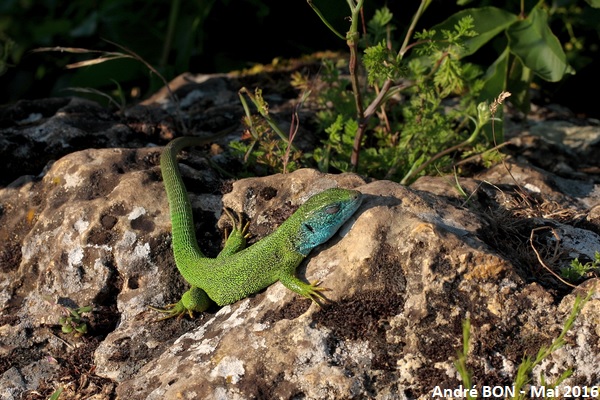
|
The Tihany Peninsula, of volcanic origin, presents some particular rock formations which are in fact geyser cones. We had the pleasure of seeing that they were used by Green Lizards as a location for their sunbathing. |
| [To know more about the Green Lizard] [Next picture] [Previous picture] [Top] |
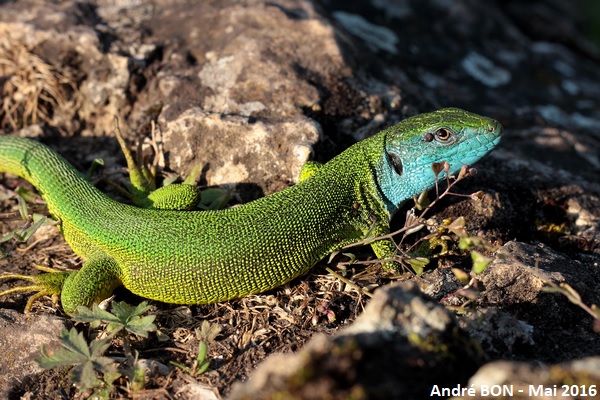
|
Here is a male with its nice blue throat. |
| [To know more about the Green Lizard] [Next picture] [Previous picture] [Top] |
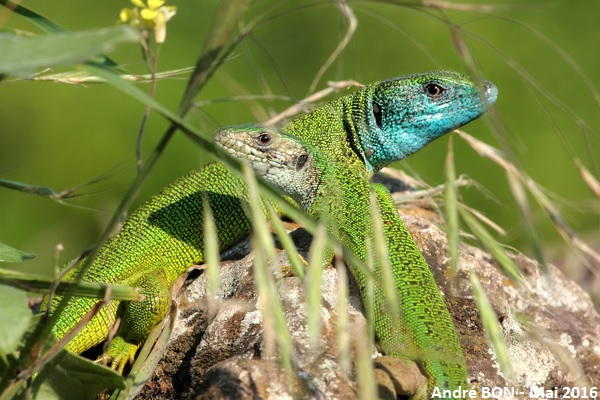
|
Mister and Madam! |
| [To know more about the Green Lizard] [Next picture] [Previous picture] [Top] |
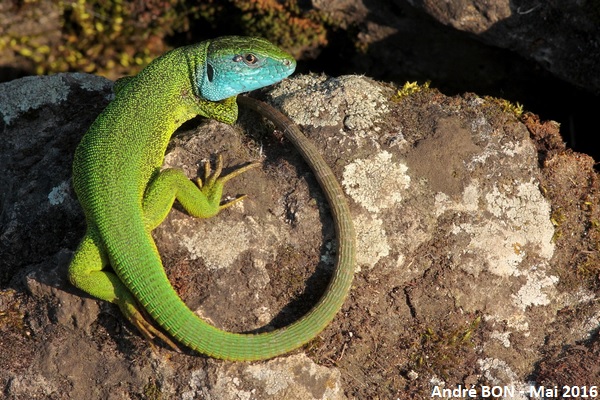
|
Not easy to find an angle of view to see the very long tail. |
| [To know more about the Green Lizard] [Previous picture] [Top] |
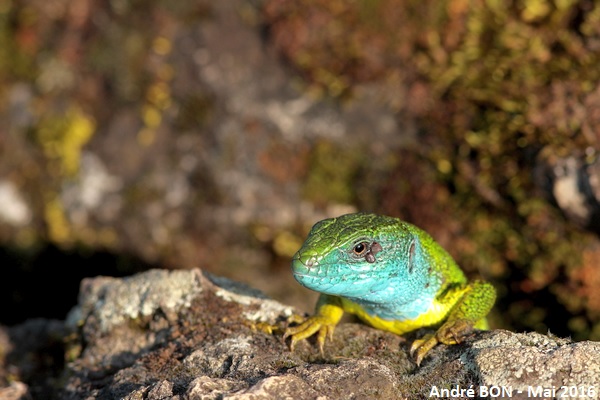
|
After a few tens of minutes Green Lizards were less shy and we were able to observe them quietly. Many of them were parasitized by ticks. |